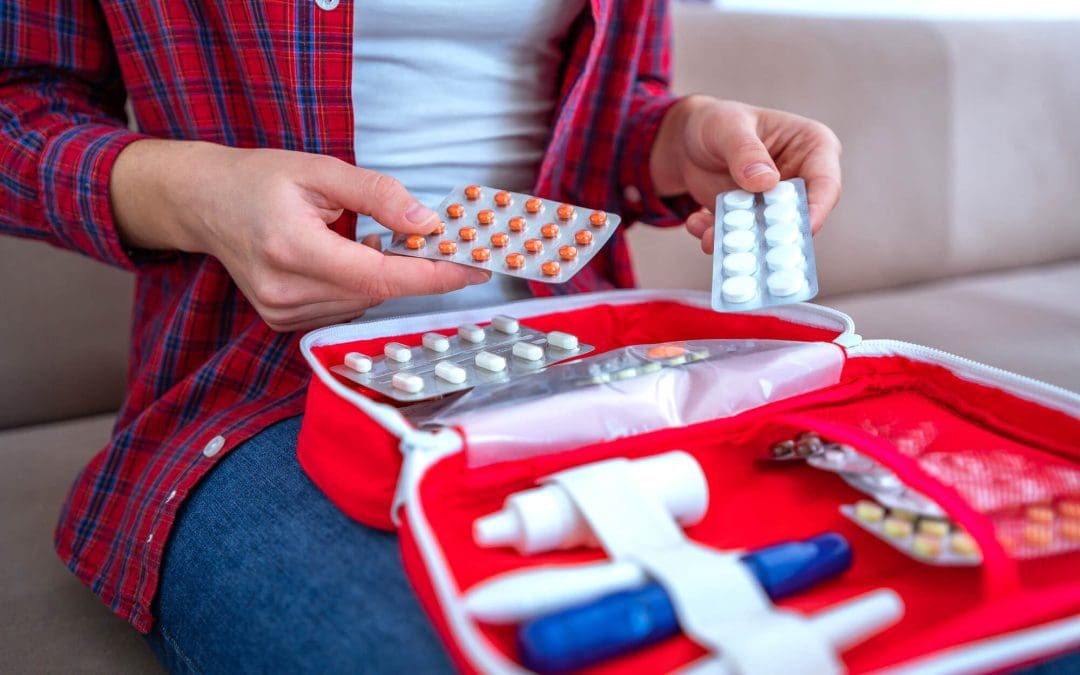Your home is a place where you should feel secure and at ease. Ensuring your home is equipped with thorough safety measures provides peace of mind and protects your family and belongings. These home safety essentials will give you everything you need to protect yourself and your investment in your home.
Home Safety Essentials for Fire Safety
One of the most critical aspects of home safety is fire protection. Start by installing smoke detectors in key areas, such as every bedroom, outside each sleeping area, and on every level of your home. Regularly test these detectors and replace batteries at least once a year. Consider investing in a fire extinguisher for the kitchen and other high-risk areas. Additionally, create and practice a fire escape plan with your family to ensure everyone can evacuate quickly and safely.
Security Systems
A robust security system is essential for deterring burglars and providing immediate alerts in case of a break-in. Modern security systems often include a combination of motion detectors, security cameras, and alarms. Make sure your system is professionally installed and regularly maintained. It’s also wise to consider smart home technology that allows you to remotely monitor and control your security system via smartphone apps.
Carbon Monoxide Detection
Carbon monoxide (CO) is a colorless, odorless gas that can be deadly if not detected. Install CO detectors in critical areas of your home, especially near sleeping areas. Like smoke detectors, these should be tested regularly, and batteries should be replaced annually. Be aware of the symptoms of CO poisoning, such as headaches and dizziness, and ensure that any fuel-burning appliances are properly maintained.
Home Safety Essentials for Children
If you have young children, childproofing your home is essential. Secure heavy furniture and appliances to the wall to prevent tipping, use outlet covers to prevent electrical shocks, and keep small objects out of reach to avoid choking hazards. Safety gates can help restrict access to dangerous areas such as stairs or the kitchen.
Emergency Preparedness
Preparing for emergencies involves more than just having a fire extinguisher or first aid kit. Create an emergency kit with essentials like non-perishable food, water, flashlights, batteries, and a battery-powered radio. Develop a family emergency plan that covers different scenarios, including natural disasters and medical emergencies. Regularly review and practice this plan to ensure everyone knows the steps to take in an emergency.
Maintenance is One of Your Home Safety Essentials
Regular home maintenance can prevent many safety issues from arising. Ensure your home’s heating system is inspected annually to avoid potential fire hazards and carbon monoxide leaks. Clean out gutters to prevent water damage and check for any structural issues that might compromise your home’s safety. Keeping up with routine maintenance helps your home remain a safe haven for you and your family.
Home safety is a multifaceted aspect of maintaining a secure and comfortable living environment. Prioritizing safety protects your home and fosters peace of mind for you and your loved ones.
FAQs
Are smart home security systems more effective than traditional systems?
Smart home security systems offer the advantage of remote monitoring and control, which can provide enhanced security and convenience. They often include features like live video feeds, motion detection alerts, and integration with other smart home devices. However, effectiveness can vary based on the system’s quality and the user’s engagement with the technology.
What are some ways to educate children about home safety?
Teach children about home safety by using age-appropriate language and scenarios. Practice fire drills, explain the importance of not touching hot appliances or chemicals, and teach them how to recognize and avoid potential hazards. Encourage them to ask questions and be proactive about their safety.
What are some practical tips for creating a fire-safe kitchen?
To maintain a fire-safe kitchen, never leave cooking unattended, keep flammable materials away from the stove, and regularly clean grease from stovetops and ovens. Use oven mitts instead of wet cloths to handle hot cookware, and keep a fire extinguisher nearby specifically rated for grease fires.
What should I do if I experience a carbon monoxide alarm but no symptoms?
If your CO detector alarms and no one shows symptoms, immediately ventilate your home by opening windows and doors. Leave the house and call emergency services to check for potential CO sources. Do not re-enter until it has been deemed safe by professionals.
360 Home Inspections provides inspection services to Northern New Jersey. If you’re buying or selling a home, contact us to request an appointment.

